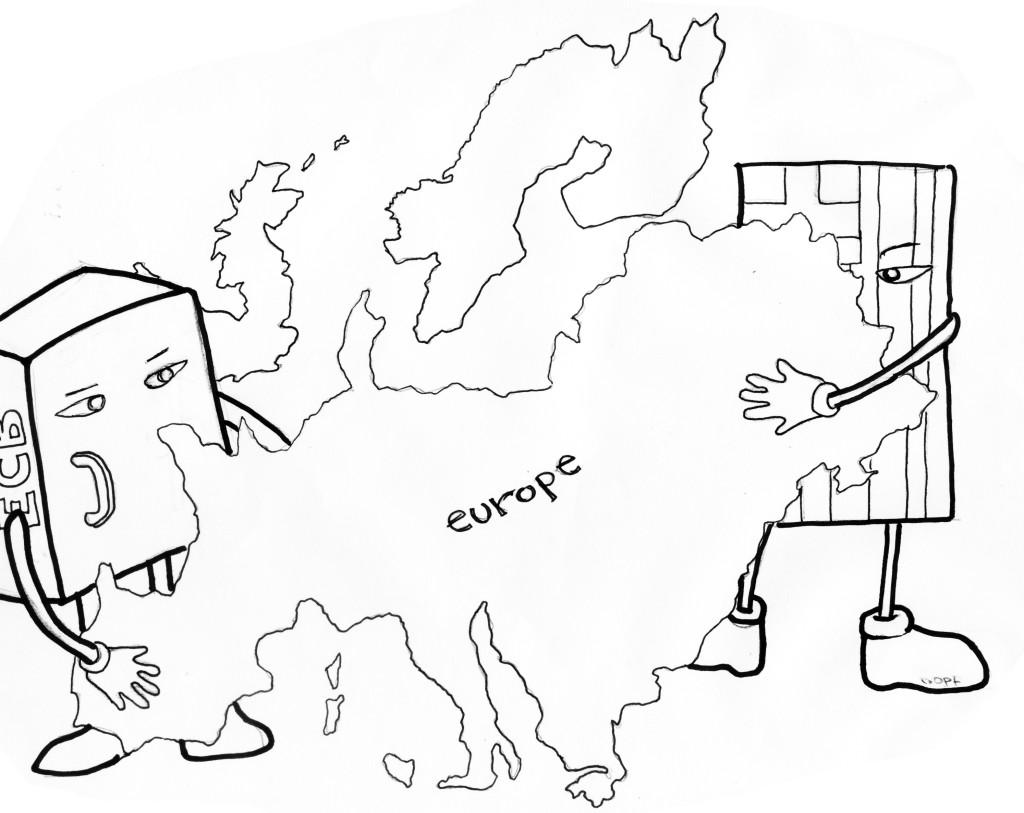Forced to meet the requirements for Eurozone and International Monetary Fund bailouts while dealing with the growing discontent among its citizens, the Greek parliament is struggling to find satisfactory solutions to its worsening debt crisis.
“The cause of the debt crisis is the mismanagement of funds by the government,” social studies teacher Jeff Miller said. “The world has based its economy on deficit spending for the past seventy to eighty years. Deficit spending is based on the premise that as long as the economy is always growing, we can take on debt. However, now we’re in recession, so the economy stops growing but the debt keeps increasing, which leads to bankruptcy.”
In 2010, the European Union and the International Monetary Fund approved a bailout package of $152.6 billion for Greece on the condition that it adopted harsh austerity measures.
Throughout 2010 and 2011, the Greek parliament passed unpopular property taxes, wage and pension and spending cuts in exchange for Eurozone and IMF funds. Despite these measures, Greek deficit continued to grow 150 percent of its annual gross domestic product.
In response to the harsh austerity cuts, a series of general strikes began across Greece May 5, 2010, leading to social unrest and anti-government sentiment, continuing through this year.
“It’s kind of ridiculous that the Greeks are protesting the austerity measures when they are necessary to improving the economy,” senior Daniel Koslovsky said.
As Greece faces protests against spending cuts, European leaders continue to struggle to agree on a solution to the European debt crisis. A summit attended by world leaders including French President Nicolas Sarkozy, German Chancellor Angela Merkel, and IMF managing director Christine Lagarde was held in Brussels Oct. 23. During talks, Merkel and Sarkozy, whose countries have the two largest economies in the Eurozone, expressed the need for further bailout packages to combat Greece’s growing crisis.
According to economists, there are three main tracks that the European economic crises could take. One option is for the Eurozone nations to unite under a central fiscal authority, pooling their resources to finance weaker governments at lower interest rates.
“The EU needs to be in control,” junior Collin Christner said. “The Greek government has not proven itself capable of handling its country’s economy in an effective manner. The other EU leaders need to step in and take the reigns, and try to get the situation under control. If they fail, then they fail, but at least we would know that there are credible people on the job.”
Another option is for financially weak nations to exit the Eurozone. In fact, the unresolved debt crisis is prompting talk in non-involved European nations about withdrawal from the EU. According to a Guardian/ICM poll, 49 percent of voters in Britain would support such a withdrawal. A final option is for the nations to take coordinated actions without uniting officially, a course leaders are currently taking. Whatever path European leaders take, actions must be taken to quell the current economic crisis in order to stave off global economic depression. An unchecked crisis in the Eurozone, with the largest GDP in the world, could have economic consequences beyond Europe.
“The debt crisis definitely has the potential to have an impact like [that of the Great Depression],” Miller said. “But in the Great Depression, we still had the belief that we could isolate ourselves economically and still be fine, and we didn’t understand the interconnectedness of the economy. We understand that now. The idea of globalization has permeated our political philosophy. If Greece were really about to go bankrupt, someone will step in.”
Note: Eurozone leaders settled on a deal in another summit Oct. 26, agreeing to increase bailout funds to €1 trillion with European banks agreeing to 50 percent private sector losses on Greek bonds. In reaction to the new bailout plan, U.S. stocks rallied, with the Dow rising nearly 340 points within a day of the summit. For further updates about new developments, visit www.laduepanorama.com. #











